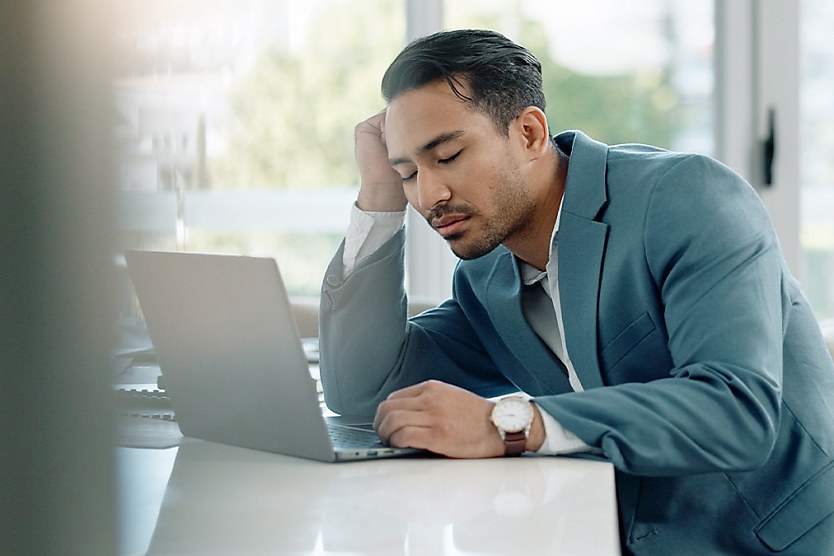Aussie workers taking ‘sneaky naps’ during work hours
SHARE THIS ARTICLE

A new report has highlighted that Aussie workers across the country are showing up to work exhausted.
Aussie workers are knackered. With the holiday season approaching, at least one in two workers cannot wait for a short break to rejuvenate them after what has been a tumultuous year for many.
The annual sleep survey by health insurer HIF has revealed that more than half (54 per cent) of workers have admitted to turning up to work exhausted over the past year, with the overwhelming majority of this group (90 per cent) saying it has directly affected their productivity.
According to the index, nearly three in 10 Aussies have faked a “sickle” because they were too tired to work (28 per cent). Along with this, 15 per cent of working Aussies have taken a “sneaky nap”, either at work or during their working hours.
“Poor sleep is a critical workplace issue, affecting both employee and organisational health and performance through higher absenteeism, reduced productivity, and weakened innovation,” said sleep expert Amanda Slinger, who works to optimise employee performance.
“When employees are under-slept, they’re at greater risk of errors, poor decisions, and stress-related illnesses, which directly impact an organisation’s bottom line. The workplace gives employers a powerful opportunity to enhance employee sleep health through targeted education and smart work design.”
HIF chief executive Justin James also said: “This research highlights some concerning data about Aussies and their sleep and how exhausted we are as a nation.”
“Not enough importance is placed on sleep in Australia, and we’re working hard to help change that narrative. There are no medals for ‘powering through’; sleep is a health issue, and we need to treat it as such. No one needs to ‘fake a sickie’ if they’re tired.”
This was a notion that was touched on by Rachel Beard, a sleep wellness manager at AH Beard Sleep Wellness, on a recent HR Leader Podcast.
“I think it’s that old saying, ‘we’ll sleep when we’re dead’, or sleep is for the weak. But sleep is no longer a nice-to-have; it’s a necessity. When we look at the long-term impacts of poor sleep quality, we look at them in terms of our productivity and our safety in the workplace, as well as our overall health and wellbeing,” said Beard.
“When we look at our health and wellbeing from an individual standpoint, when we don’t get the sleep we need, we are more susceptible and more likely to develop serious illness and disease. We need a good night’s sleep, in particular, deep sleep. When we get good quality sleep, our bodies naturally flow through different cycles that play an essential role in helping us wake up feeling refreshed.”
The original survey by HIF touched on fly-in, fly-out (FIFO) workers, who make up a large part of Australia’s workforce. These workers’ hours logged, plus the travel, can have a huge effect on their sleep patterns.
The survey claimed that nearly eight in 10 shift workers of 10-plus hours (79 per cent) said they’ve turned up to work exhausted during these shifts, and a third of these night shift workers admit to having fallen asleep at work (33 per cent).
Kace O'Neill
Kace O'Neill is a Graduate Journalist for HR Leader. Kace studied Media Communications and Maori studies at the University of Otago, he has a passion for sports and storytelling.

